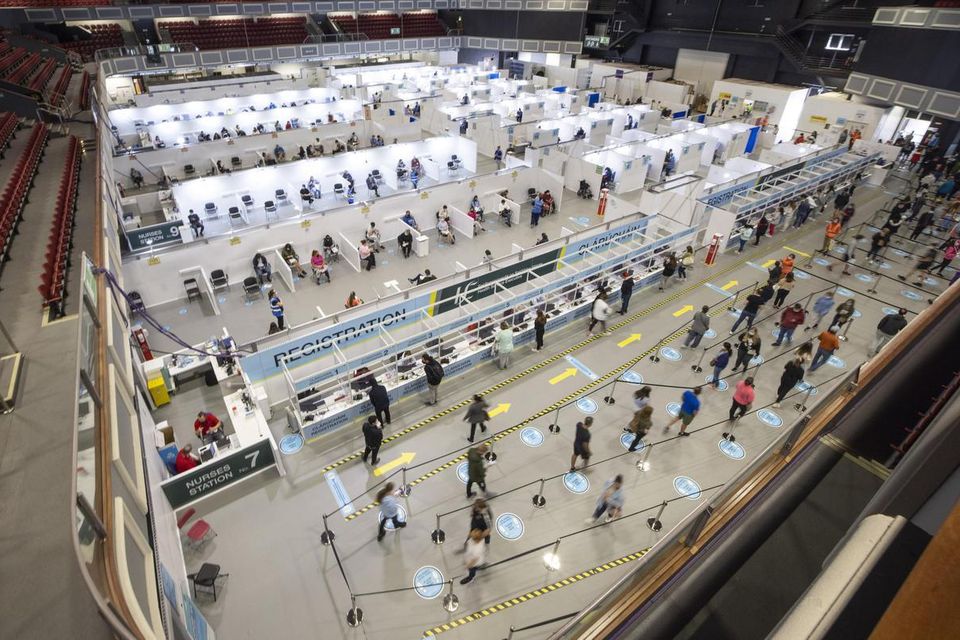HSE’s vaccination effort has done Ireland proud
The HSE walk-in vaccination centre in Citywest, Dublin. Picture by Fergal Phillips
Bewailing the parlous state of public services in Ireland compared with other EU nations is practically a national pastime. It would be remiss not to give the performance of State agencies the same attention when they get something right.
Last week’s announcement by the Health Services Executive (HSE) that more than 80pc of adults are now fully vaccinated against Covid-19, with almost 90pc having received at least one jab, marks a significant milestone that cannot be allowed to pass without due acknowledgement.
The HSE has been guilty of serious shortcomings since its formation in 2005, not least the CervicalCheck scandal, and is routinely lambasted as unwieldy and bureaucratic but its role in the Covid vaccine roll-out has shown Irish public services functioning at their very best.
More than three million people have been vaccinated since the year began. Jabs are now being offered to under 16s. According to HSE CEO Paul Reid, the programme is now in its “final leg”.
It is not just one of the highest vaccination levels in Europe but in the world. Even Germany, widely admired for its health system, is behind Ireland when it comes to the vaccine roll-out.
When it mattered, the HSE did the country proud, something that no one expected when the UK raced ahead of the pack earlier in the year. It would be unfair to say the Government’s harshest critics were willing it to fail but there was certainly an expectation of failure.
By early January, opposition spokespersons were already condemning the pace of progress.
Read more
In March, there were “testy exchanges” in the Dáil, with Health Minister Stephen Donnelly excoriated for “over-promising” after admitting the target of 700,000 jabs by the end of Match was unlikely to be met. “Other states are moving ahead of us,” TDs protested.
Sinn Féin leader Mary Lou McDonald even declared of ministers that “she wouldn’t have confidence in many of them to deliver a pint of milk to my front door”, never mind vaccines.
Fianna Fáil and Fine Gael backbenchers were expressing similar concerns behind closed doors.
Mr Donnelly always insisted the organisational capability was there within the HSE once there was a reliable supply of vaccines from the manufacturers. That has proved to be the case. Even a major cyberattack on the HSE in May did not slow down vaccinations.
Recent boasts on social media from Government saying Ireland had overtaken the UK in the vaccine race may have been uncalled for. It would have been more seemly to simply thank HSE staff and volunteers who made it possible.
But the failure of those who lost no opportunity to heavily criticise the vaccine programme since the start of the year to now give credit where it is due should not go unnoticed either.
While taking deserved pride in how effectively it has handled the vaccination programme, the HSE should also be aware, however, that Irish people may be less forgiving of excuses in future now they have seen what the HSE is capable of achieving once all shoulders are to the wheel.
If millions of otherwise healthy adults can be vaccinated in a short space of time there can be no excuse for letting the sick and vulnerable, including children, continue to go so long without the high quality public services they deserve.
Join the Irish Independent WhatsApp channel
Stay up to date with all the latest news















